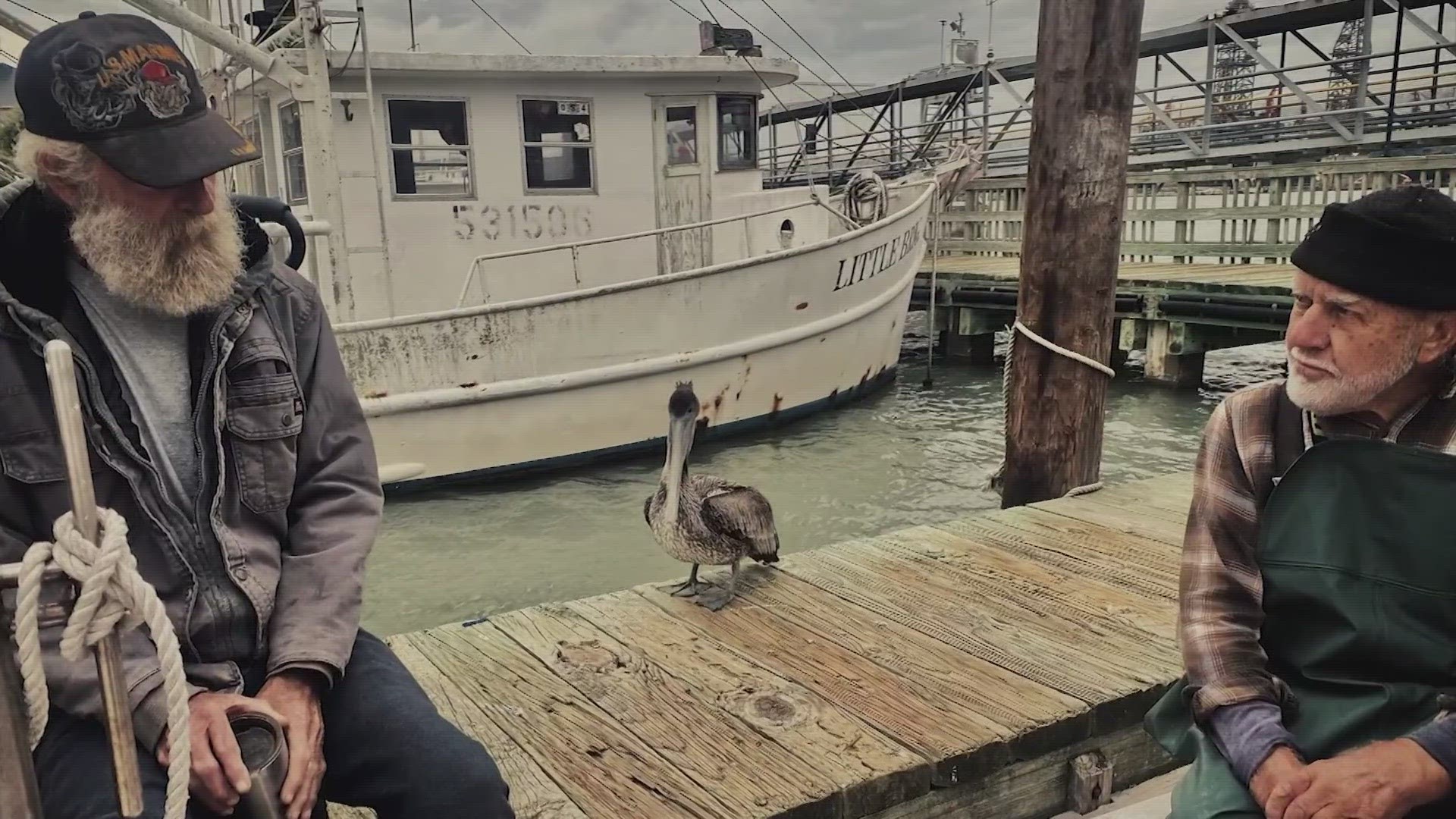GALVESTON, Texas — Texas Gulf shrimpers are going out of business during what many are calling the worst period in the history of the industry.
"You’ll see numerous boats up and down this dock and most of them are just set here," Nikki Johnson-Kunz said as she stood along Pier 19 in Galveston.
Pier 19 was once a bustling hub for Galveston’s shrimping fleet -- from the same spot a few years ago, one could watch dozens of shrimp boats running back and forth to the Gulf and then to the seafood markets along the docks to sell their catch.
On Wednesday afternoon, there was only one.
"They probably had the limit, which is probably about 300 pounds, so with that, they can’t sell anything," Johnson-Kunz, also known as the "Texas Shrimp Diva," said. "The shrimp markets can’t buy them ... the restaurants aren’t buying them."
Johnson-Kunz married into a Galveston family that’s been fishing the waters for shrimp for more than a century. They said business has never been as bad as it is now.
"Our prices that we get paid per pound are under a dollar," she said. "It’s sickening."
Captain Jerome Kunz, Johnson-Kunz’s father-in-law, has been shrimping for more than 80 years. The Captain, more commonly known as "Pops," has been in the family business since he was 10.
"Remember when we used to make about $3 a pound for shrimp,” Johnson-Kunz says to the Captain. "Now, we can’t even get 60 cents."
"Can’t even sell them," Pops said.
It's the only business Pops has ever known.
"He raised a family of 10 kids on his salary," Johnson-Kunz said. "We can’t even afford to put gas in the boat now."
It’s hard for Pops to come to terms with the state of the Gulf shrimping industry as it is today.
"I’d leave in the dark, come home in the dark, seven days a week," Pops said. "Didn’t take a day off."
"You won’t be able to fish this year," he says. "They won’t buy. It’s pretty sad, really. Thank God I got all my kids raised and I’m just fiddling around keeping the battery charged."
The loss felt by Gulf Coast shrimpers has been the gain of shrimp farmers abroad.
"India imports 34% of the farm-raised shrimp," Pops said. "Then you’ve got Mexico, China, you’ve got Ecuador, and some of the other smaller countries. They don’t have to pay no labor. The labor is so cheap that they can sell them cheap. We can’t compete with it. There’s no way. Just no way."
In a business driven by the cheapest price per pound, the importers are winning.
"Right now, the seafood markets are so stocked full they’ve got freezers full of shrimp that they can’t move because the imported shrimp is killing our industry," Johnson-Kunz said. "You go into a grocery store, there are five types of shrimp, four of those are all imported."
In Galveston’s seafood restaurants, where you’d expect to find fresh locally-caught shrimp on the menu, Johnson-Kunz said that’s not always the case.
"The restaurants that’re on the Gulf, very misleading, it says wild caught, but if you look in their freezer, it all says imported," she said.
But you can find Gulf Coast shrimp if you know where to look.
"Fresh shrimp is always awesome," Brett Otteman, the general manager of Katie’s Seafood House on Pier 19 in Galveston, said. "It’s just got this sweet, buttery aroma to it that everybody loves. We try to buy all our shrimp from these guys out here on these boats. They’ll pull up their shrimp to the market where they’ll offload to the market."
Otteman said he refuses to serve shrimp that isn’t caught fresh locally.
"I’ll run out (to get some more) if we don’t have it," he said.
Otteman said it's more expensive, and Katie’s shrimp prices reflect that on the menu, but the difference in taste and quality makes it worth it.
"I don’t know what the solution is," Johnson-Kunz said. "I just think that consumers need to have a choice, and they need to know that there are choices. If you pay $12 for a pound of shrimp, is it pumped full of chemicals that you might have a reaction to? Or is it pulled right here out of the Gulf?"
Pops said the latest downturn could put the nail in the coffin for the Gulf Coast shrimping industry.
"The industry was dying anyway and now this put the icing on the cake," he said. "Icing on the cake."
For the shrimp boat captains who haven’t started their engines once this year, it may already be too late.
"I’ll just hang in until I kick the bucket," Pops said.

